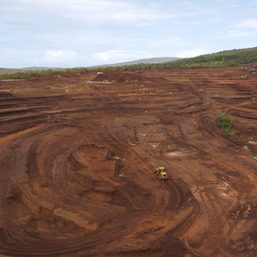SUMMARY
This is AI generated summarization, which may have errors. For context, always refer to the full article.
![[Science Solitaire] Worrying about the weight of the world](https://www.rappler.com/tachyon/2021/01/worrying-about-the-weight-of-world-January-9-2021-001.jpg)
Yup, we self-declared human geniuses set a record again. This time, we “tilted” the world scale – a record weight that all of us, regardless of how much you personally gained or lost during 2020, have to worry about.
First, we focus on the “right” weight. The whole world weighs about 13 billion trillion tons (“13” followed by 24 “0s”) plus we get about 60 tons of space dust per day. But if you sorted stuff in the planet in a certain way, that is when things get worrying.
Sorting stuff in nature is among the things scientists do and they are very good at it. Weighing the world was first attempted by Henry Cavendish (1731-1810), a scientist who has always captured my imagination, as he was so extremely shy that he had a separate set of stairs made just for himself so he would not bump into any of his housemates (I know a number of scientist friends this century who are the same.) His resulting weight of the Earth was off by only a few from the current estimate, considering that he made his own measuring instrument 222 years ago.
But imagine a scale where you can weigh “life” on one side and “artificial” on the other. Scientists have been measuring all the seemingly uncountable “big stuff,” and in 2018, scientists estimated that the world’s living stuff, measured in dry “biomass” (the amount of renewable material from living things minus the water), weighed about 1.1 trillion kilograms. That includes the total weight of over 7 billion people at 632 billion pounds or 316 million tons.
Research published last month revealed that all the stuff that humans have made now equal the weight of “life” on the entire planet!
But wait, there’s more.
Our “material world” has not just become a serious heavyweight; it is also gaining more weight at a mind-blowing rate. Since 1900, with the world’s love affair with the industrial revolution raging, the weight of all “artificial” stuff has started to double every 20 years, because since then, weekly, we’ve produced human-made stuff at the rate of the average weight of all the 7.7 billion people on Earth!
Our material world is made up of all the roads (half of the weight of all the “artificial,” which makes Joni Mitchell’s Big Yellow Taxi’s “paved paradise, put up a parking lot” a foreshadowing of scientific fact!), buildings, pots, cars, pans, cars, toys, bags, balloons, etc – all the stuff we humans make and love and throw away!
At the rate we are going, we will exceed even life’s “wet” weight (biomass with water) by 2031 (if we include the weight of the waste we generated) or by 2037 (if we do not include the weight of waste). And therein lies our biggest cause for worry and alarm.
“Artificial” is not renewable and it will not magically disappear even if we all radically agree to turn to renewables 100% tomorrow. All the artifices we have now will eventually turn to waste unless we figure out a way to reuse most if not all of them. At the rate we are producing stuff and waste, this means that our “material world” is now suspending “life” – the other side of the scale. That is not “uplifting,” but a death sentence by “hanging.”
About 10 years ago, Orlin, our messenger, stopped me along the corridor to ask me a question. He said he’d noticed so much construction in the section of the metropolis where we worked, so he asked me (with his two hands gesturing) if we should not be worried that all the weight may cause the Earth to tilt. I told him why there was no need to worry about the tilting and why – but that was because I was thinking only about the overall weight of the Earth, regardless of how much construction is going on in some parts of the globe. But he was on to something and I failed to see it then.
No species, not even the cockroach (which many are fond of citing) has overrun the planet on the scale that humans have. This is why this age of the planet is called the “Anthropocene” (“anthropo” referring to “human” and “-cene” denoting a geologic age.)
One of the proven ways to cut down on food intake is to imagine too much of that food. I wonder if that would work for thinking about making more and more stuff. Maybe that pause will nudge us in all the roles we play in our shared lives, to think of working with life instead of overtaking it.
Yes, I know it is only January. This is another weight to carry with the already overburdened luggage we have to carry around. But it is baggage we have to constantly remember because “life” is the one thing we cannot outlive if we overtake it. – Rappler.com
Maria Isabel Garcia is a science writer. She has written two books, “Science Solitaire” and “Twenty One Grams of Spirit and Seven Ounces of Desire.” You can reach her at sciencesolitaire@gmail.com.
Add a comment
How does this make you feel?








There are no comments yet. Add your comment to start the conversation.